Before you go to the garage, be sure to warn your loved ones about this and take your mobile phone with you.
Young children love to watch adults earn money, but they do not belong in the garage if there is a long and serious repair ahead. Especially if we work with solvents, weld or remove heavy aggregates. Pets must also stay at home.
Garage doors should open freely and quickly from the inside and out, and if the weather permits, it is generally better to keep them open. The passage to the doors should not be cluttered.
Be sure to place a fully stocked first aid kit in a conspicuous place. The drugs included in its composition should not be expired.
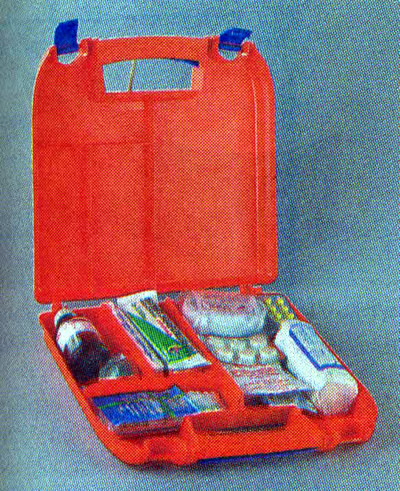
A serviceable fire extinguisher should always be literally at hand, and not the one that you carry with you in the car, but a special, garage one, with a capacity of at least 5 liters. Keep a large garden watering can nearby when welding.
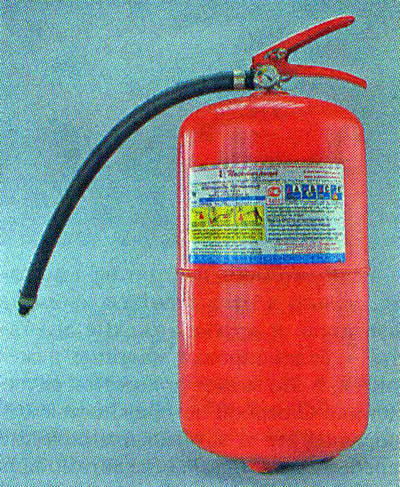
Exhaust gases contain carbon monoxide (SO), or carbon monoxide, is a substance that is extremely dangerous to life, moreover, it is odorless and colorless. Therefore, before starting the engine, intensive ventilation of the garage room should be ensured (just an open door is not enough). It is necessary to open the gate wide open or, in the cold season, ensure that gases are vented to the outside through a hose tightly worn on the exhaust pipe. When the engine is running, people should not be in the inspection ditch.
Clothing should be comfortable, not restricting movement, without hanging edges and straps that can get caught in rotating mechanisms. To protect your eyes when working under the body or using power tools, you will need glasses with plastic glasses or, better, a special transparent mask.
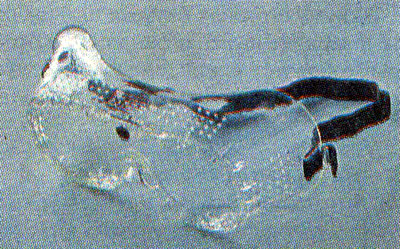
Gloves on the hands also sometimes do not interfere, and for some types of work (body repair, removal of heavy units) they are simply necessary. For welding work, use canvas leggings and a special protective shield with a light filter. But rings, rings and watches are completely unnecessary.
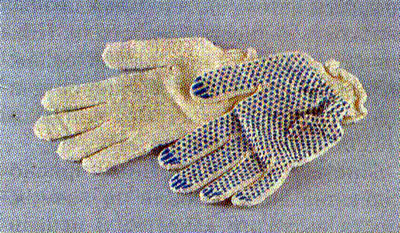
Remove the key from the ignition before starting work.
When doing work, take your time, carefully preparing each operation.
Gasoline can ignite from anything: a slipped spark, a lit match, when it hits a hot manifold, or during welding. Be especially careful during any operation on the fuel system.
Attention! The fuel in the fuel line is under pressure and must be depressurized before starting work (for details, see «Fuel Line - Pressure Relief»).
Clean up even small amounts of spilled fuel immediately with a rag (which you immediately take out the door) and ventilate the room. Until the smell of gasoline disappears, you can not work with an open flame, turn on and off electrical appliances, remove and put on the terminals on the battery terminals. Gasoline vapors are heavier than air, they can fill the inspection ditch and patiently wait for a cigarette butt thrown there. All of the above applies not only to gasoline, but also to various solvents, the concentration of which in the air can become dangerously high when painting or washing parts.
It is forbidden to smoke in the garage, even if there is no direct contact with fuel and other flammable liquids when working.
Do not store in a garage «strategic» stocks of fuel, oil and paint, gas cylinders, as well as used rags.
Do not start repairs until all vehicle components and coolant have completely cooled down. While the engine is hot, excess pressure remains in the cooling system, and splashed boiling water can burn your face and hands.
The tool and various devices should be of the highest possible quality and in good working order. The screw of the mechanical jack must not show signs of noticeable wear, otherwise the jack may break. Open-end wrenches, adjustable wrenches, and ratchet wrenches should only be used when no other tool is available or for minor connections. For «serious» bolts and nuts need tool heads with a reliable wrench, in extreme cases - strong box wrenches. Applying a lot of force, pull the key towards you - this reduces the likelihood of injury if the key breaks.
Do not start work if the car is raised only on a jack, use reliable factory-made stands.
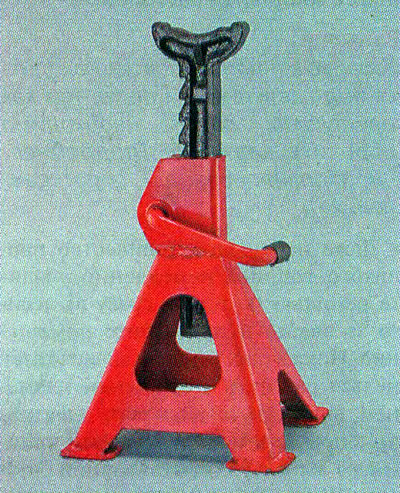
Do not lift the car on several jacks at the same time. To lift the car, place the jack only under the special places on the body intended for this purpose, after making sure that they are strong and that there is no severe corrosion. Do not forget to place stops under the wheels, if possible, additionally engage first gear or the parking brake.
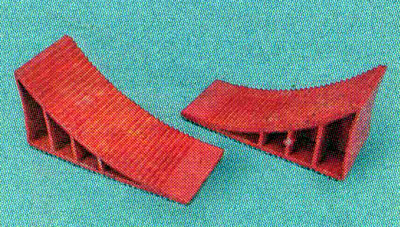
If the car is on a jack, you can not get into it, remove the engine and other heavy units - the balance of the car will change, and this can lead to its fall. Use extreme caution when loosening and tightening power fasteners when the vehicle is on stands. If people work under the machine, then no forceful actions can be performed from above, including sitting on the seats, putting or taking out the load.
Do not lean over rotating parts of a running engine or do any work in the engine compartment or transmission.
Do not repair the ignition system while the engine is running (engine control) and do not touch the high voltage wires of the ignition coil (ignition module).
When working with electric welding on the car body, disconnect the battery and disconnect the block from the engine control unit.
A power tool with an operating voltage of 220 V must be reliably grounded if grounding is provided for by its design.
When replacing brake pads or clutch, do not use compressed air, as asbestos dust from worn linings is very harmful to the body.
During operation and charging, the battery releases hydrogen, which forms an explosive detonating gas with oxygen in the air. So that he doesn't «thundered», be careful: before connecting and disconnecting the charger clamps, vigorously wave a piece of cardboard over the battery, dispersing the hydrogen. For the same reason, you should not work with power tools or weld while the battery is being charged in the garage.
Batteries are filled with electrolyte - an aqueous solution of sulfuric acid. It is poisonous and causes burns to the skin and mucous membranes, and in addition, it leads to corrosion of parts and burns through any tissue. Be careful! Electrolyte that gets into the eyes should be washed off with plenty of cold water. If the electrolyte comes into contact with the skin, neutralize the acid with a solution of baking soda (not soap!). Clean water and baking soda should always be around when dealing with a battery.
Avoid skin contact not only with electrolyte, but also with any technical fluids, solvents, used engine oil, brake fluid, diesel fuel. All of them are harmful in one way or another. After work, you can use special preparations for dry cleaning of hands or at least vegetable oil, and then wash your hands with warm, but not hot water and dishwashing detergent. Washing powder for this is better not to use.

Food and a garage are incompatible, it is difficult to observe the rules of hygiene here.
When finished, dispose of the oiled rags. Do not leave flammable liquids (including oil) in an open container.
When leaving the garage, do not forget to turn off all electrical appliances.
